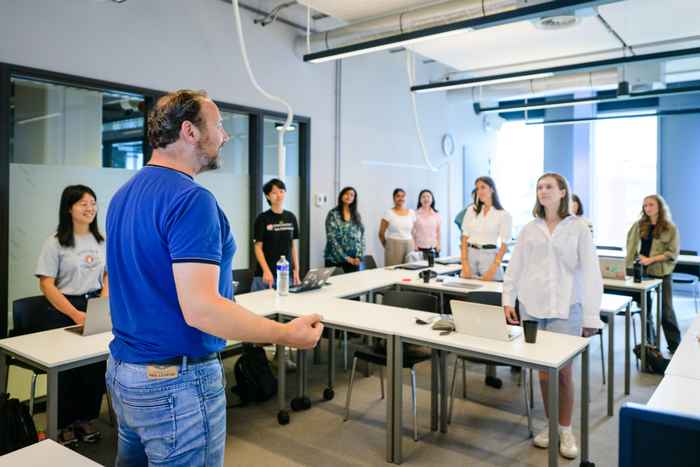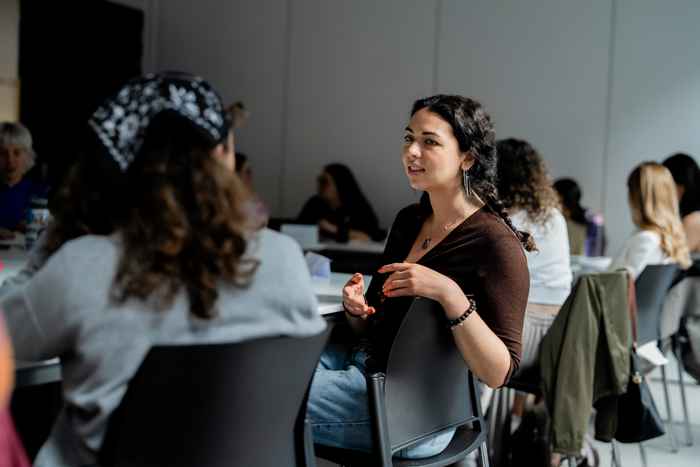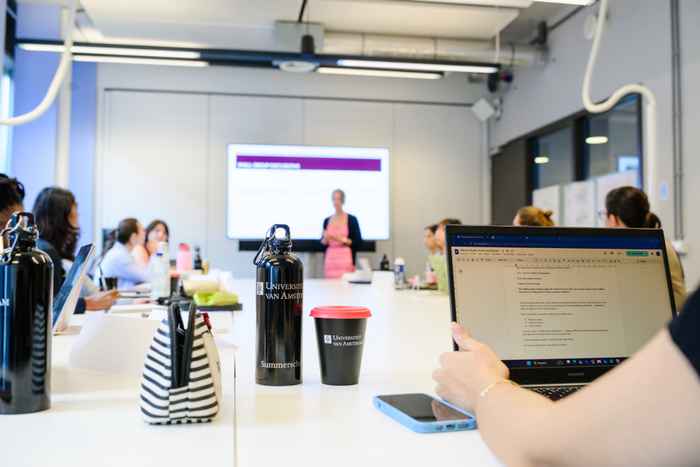Mental Health, Youth and Society
With unprecedented levels of mental distress and addiction reported globally, recent events exposed fissures within our social and health care systems. Behavioral health, focused on the promotion of mental health, resilience, and well-being, can have wide ranging impacts individually, socially, and economically. This course examines public health approaches including health promotion, prevention, and intervention, specific to mental health and addictive behaviors. Through interactive, multi-modal, and problem-based learning, we interrogate issues pertinent to our recovery from this global health crisis.
-
Programme at a glance
Mode of instruction: On-campus (3 weeks) Academic dates: Thursday 25 June - Wednesday 15 July 2026 Housing dates: Wednesday 24 June - Thursday 16 July 2026 Academic fees: Student fee:
€1750. Read more about what's included in the fees.
Professional fee:
€2000. Read more about what's included in the fees.
Housing fees: €850 for a private room with shared facilities. Housing is optional. Read more about university-organised accomodation.
Credits: 6 European Credits. Read more about credits and credit transfer. Early Admission Deadline: Sunday 1 February 2026
Students who require a Schengen Visa to study in the Netherlands are strongly advised to apply before the early deadline to ensure there is enough time to secure a visa appointment before the programme begins.
Final Admission Deadline: Sunday 15 March 2026 Who is this programme for? Level: Advanced Bachelors, Masters students and working professionals.
Background: Students should have an experienced academic background in one or more of the following; psychology, sociology, education, public health, public policy or medicine. Applications from working professionals are also welcome if they have the relevant experience in the above field.
-
Programme description
This interdisciplinary program examines the intersection of public and behavioral health strategies to support health and well-being in adolescents and young adults. This three-week summer programme is appropriate for students with interests in psychology, sociology, education, public health, public policy, and medicine. Participants will focus on health promotion, prevention, and intervention strategies, targeting mental health and addictions. Optimally, these approaches support positive human development, promote healthy decision making, mitigate risk factors, and reduce suffering for afflicted individuals.
Participants will attend lecture-discussion sessions with faculty, guest lecturers, and learn from specialists and stakeholders in the community. In collaborative learning groups, students integrate information garnered through lectures, assigned readings, and excursions. In these learning groups, participants will also conduct literature reviews to critically examine existing health strategies and propose new policies and programmes to better address public health needs in mental health and addiction. Special attention is given to underserved or marginalised groups internationally.
Throughout this programme, students will have the opportunity to actively engage with course content as well as fellow students from around the world, expanding their knowledge of health promotion, prevention, and intervention techniques, with the goal of refining their academic research skills, and improving their ability to present their work in oral and written form.
-
Academic directors
Dr. Kristen G. Anderson is a professor of psychology at Reed College, Oregon. Kris was one of the previous directors of the long-running Summer Institute on Addiction. Kris' teaching and research branch out to include developmental psychopathology, addictive behaviors, women's health, and clinical psychology, among others. Kris is the principle investigator of the Adolescent Health Research Program. Her primary research focuses on youth alcohol and drug use decision-making in social contexts and the integration of personality and social-cognitive models of substance use initiation and maintenance. The Adolescent Health Research Program collaborates with other researchers, school personnel, and treatment centers to better understand the processes whereby youth make decisions to use alcohol and other drugs as well as make purposeful efforts to cut down, stop, or quit these behaviours. Next to her research, teaching, and rowing, Kris is passionate about spending time with students on their own research, helping them realise their potential and hone their skills.
Dr. Helle Larsen is a professor of developmental psychology at the University of Amsterdam. Helle is one of the previous directors of the long-running Summer Institute on Addiction. Helle's research focuses on social and cognitive processes related to psychopathology (alcohol use, smoking, anxiety) and behavior in adolescents and young adults. She is interested in the interplay between the social context (e.g., peer influence) and individual risk factors such as automatic motivational processes, risk taking and genetic make-up and have an interdisciplinary research approach. In addition to conducting assessment studies to get a refined understanding of the processes and risk factors involved in psychopathologies, Helle conducts intervention studies. Among others, she investigated the effect of cognitive bias modification (retraining approach tendencies) combined with cognitive behavioral therapy to help adolescents quit smoking and am involved in online intervention studies using cognitive bias modification to decrease alcohol use, smoking, and anxiety. In another intervention study we examine how changing peer norms can improve self-regulation in youth to reduce antisocial behavior. Next to her research, Helle is in training as a cognitive behavioural therapist (VGCt, UvA minds) and is a programme manager of Research Priority Area, Yield. Yield conducts multidisciplinary research among 10 different research programmes (University of Amsterdam) with a focus on the bioecology of human development.
-
Explore our community
Want to get to know more about studying in Amsterdam? Follow us on social media and join our summer community. Get a feel for our summer school vibe and our academic and social community, and learn about studying with us through the eyes of past summer school students.



- Mode
- Short-term
- Language of instruction
- English
- Starts in
- July
- Location
- Roeterseiland campus